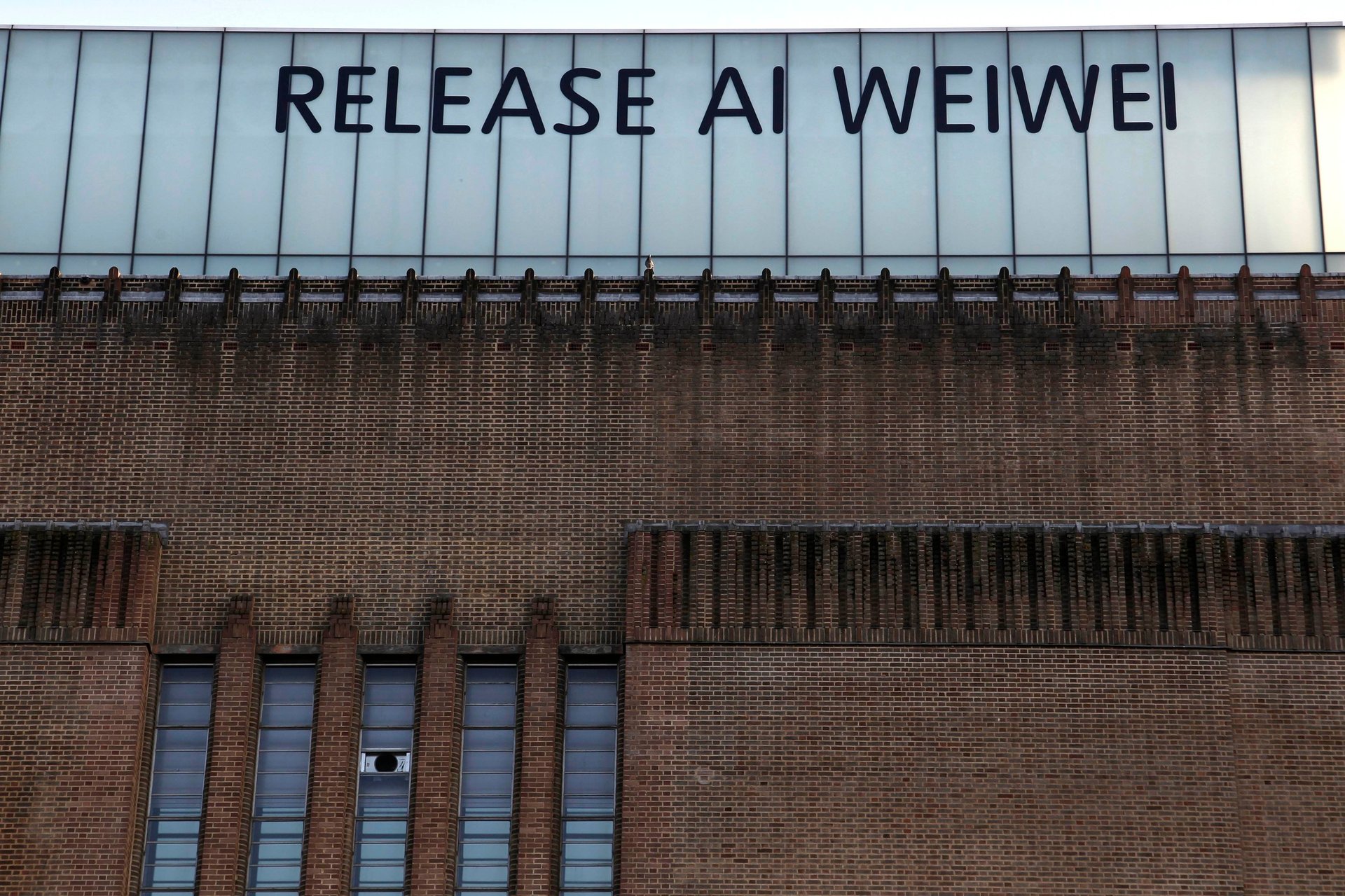Ai Weiwei has been denied a British visa to his own show because of a criminal conviction he doesn’t have
Ai Weiwei has his passport back, and many hoped that meant he would attend his show at the UK’s Royal Academy due to open in September. The public has already pledged £55,000 ($86,000) to a Kickstarter campaign aimed at crowdfunding an installation of eight huge tree sculptures at the exhibition of the Chinese dissident artist’s work.


Ai Weiwei has his passport back, and many hoped that meant he would attend his show at the UK’s Royal Academy due to open in September. The public has already pledged £55,000 ($86,000) to a Kickstarter campaign aimed at crowdfunding an installation of eight huge tree sculptures at the exhibition of the Chinese dissident artist’s work.
It turns out the artist will attend—but he may make only a brief appearance because UK immigration officials have refused him a business visa he requested to come and install the show.
A letter from the visa section of the British Embassy in Beijing that he posted says that Ai Weiwei has been refused the six-month visa because he failed to disclose relevant information about criminal convictions in China. The authority instead said that—making “an exception”—it issued Ai with a visa for 20 days. The letter says:
It is a matter of public record that you have previously received a criminal conviction in China, and you have not declared this.
But Ai says he has never been convicted of a crime in China. The artist posted a response in which he said he “has never been charged or convicted of a crime” in China. He was detained without charge for 81 days in 2011—and only just got his passport back from that incident. In 2010, he received a fine for tax evasion as part of a civil case, which Ai says was politically motivated.

Ai’s post says that he “attempted to clarify this claim with the UK Visas and Immigration Department and the British Embassy in Beijing over several telephone conversations, but the representatives insisted on the accuracy of their sources and refused to admit any misjudgment.”